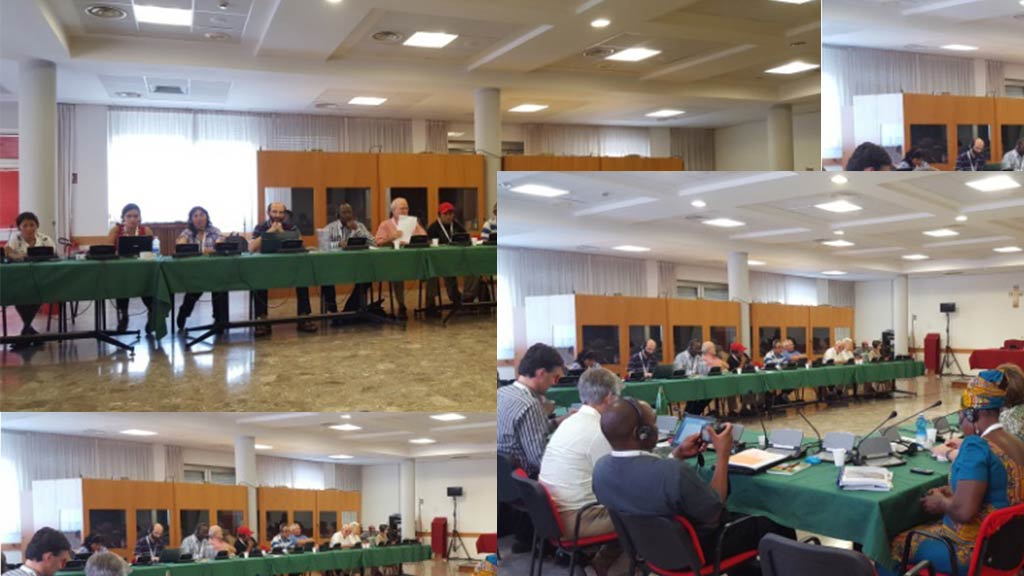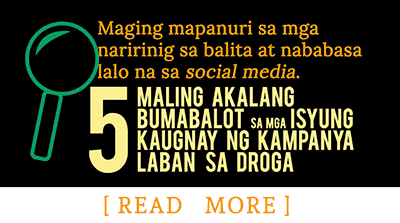In time for the meeting of the Pontifical Council for Justice and Peace held on Jul. 17-29, 2015 in Rome, Italy, the Philippine Misereor Partnership, Incorporated (PMPI) submitted a paper on the issue of mining-related human rights violations in Manicani, an island in Guiuan, Eastern Samar among areas hardest hit and where Super Typhoon Haiyan in 2013 first landed.
“We seized this opportunity to raise the very disturbing issue of destruction of environment and human rights violations in Manicani,” PMPI National Coordinator and the network’s representative in the meeting Yolanda Esguerra said.
According to Esguerra, the meeting is intended to hear the experiences of mining-affected communities from different parts of the world and reflect on the future action of the church and the communities it serves in the context of destructive mining activities worldwide.
“The gathering is aptly themed: In union with God we hear a plea. We are happy that the Vatican has initiated this event to listen to the cries and hopes of the communities whose rights are wantonly being violated by mining companies,” she added.
In the paper she submitted, Esguerra highlighted the experience of Manicani Island specifically the violence related to the December 2014 and June 2015 incidents involving a mining company, which is a subsidiary of Nickel Asia.
On both incidents, barges of Hinatuan Mining Corporation (HMC) rammed through the fishing boats carrying island residents who were protesting against the mining entrance in their community.
Members of the Save Manicani Movement (SAMAMO), including youth advocates barely escaped getting crushed by the vessel.
Dividing the community
Esguerra also lamented how the mining operations divide communities particularly in Manicani islands where a rehabilitation project is being implemented by PMPI and its network members. She said it slows down the effort to rehabilitate the island from the ravage of Super Typhoon Haiyan.
“This is dividing the community,” she said. “There is a discord between those who oppose and those who support the mining operation: family against family, sister versus her brother, an aunt and an uncle versus their nephews and nieces.”
“They [mining operations] destroy the culture of close kinship in communities, displacing people and uprooting them from their culture,” Esguerra said.
Support from Pope

Pope Francis addressed the meeting through a letter sent to Pontifical Council’s President Cardinal Peter Kodwo Appiah Turkson, reiterating his urgent appeal for collaboration in the “care of our common home, countering the dramatic consequences of environmental degradation in the life of the poorest and the excluded, advancing towards an integral, inclusive and sustainable development.”
“The entire mining sector is undoubtedly required to effect a radical paradigm change to improve the situation in many countries,” the pope said.
The pontiff joined the mining-affected communities in their call to hear the “cry of the many people, families and communities who suffer directly and indirectly as a result of the consequences, too often negative, of mining activities.”
Fr Joy Gillarme, Social Action Director of the Diocese of Marbel representing the mining-affected communities of B’laan in Tampakan, South Cotabato, one of the seven Sites of Struggles of the PMPI, highlighted the need for the church to continue to be in the side of the affected communities.
When asked if all the efforts of the communities, with the church and other civil society groups result to victories, Fr. Gillarme said, that the imbalance of power between mining corporations and the communities demand that the church be on the side of the affected community. He further added that the question for the church is not so much “Are we successful,’? rather, “Are we faithful?”
Communities and organizations from Asia, Latin America, and Africa, who are campaigning against the destruction brought about by mining activities attended the meeting. An international network of mining affected communities with their partner church groups and non-government organizations is in the drawing boards, as a result of this gathering.

